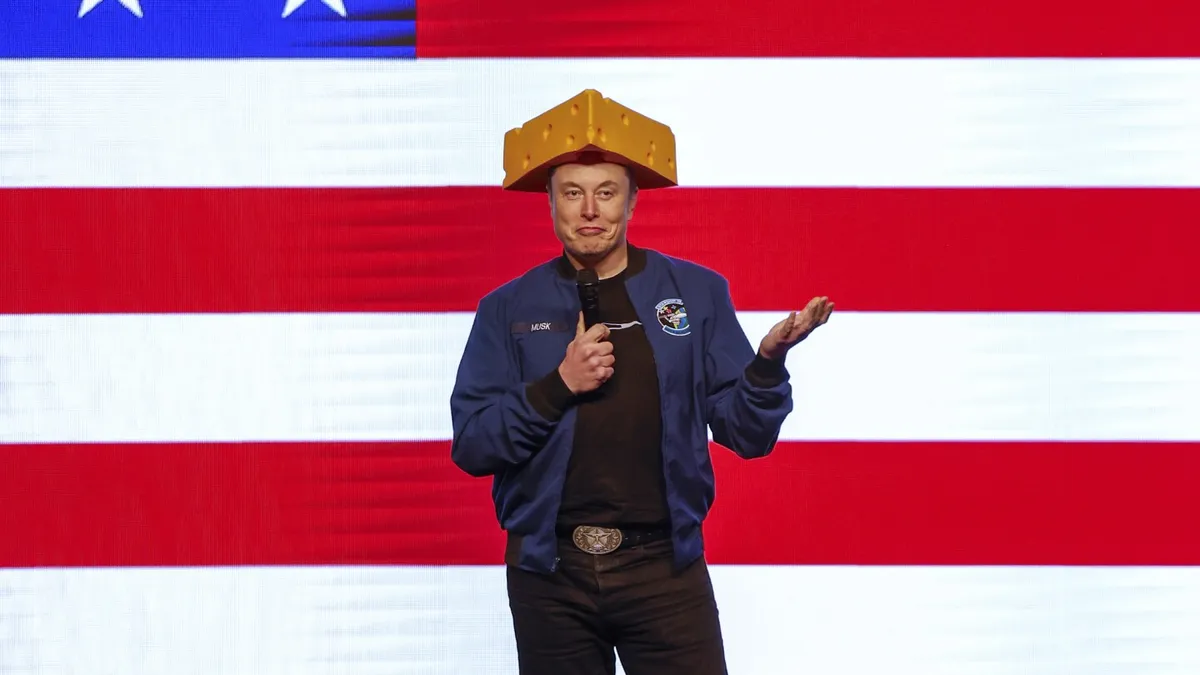
Wisconsin has become the focal point of billionaire Elon Musk's political spending endeavors, but recent developments indicate that his influence may be waning. Musk, currently recognized as the richest individual globally, announced on Tuesday his intention to reduce his financial contributions to political campaigns. This shift comes as Musk distances himself from his role in the Trump administration, opting instead to concentrate on his business ventures. Notably, this announcement follows the defeat of the candidate he supported in Wisconsin’s Supreme Court race, who lost by a significant margin of 10 percentage points.
Democrats in this pivotal swing state have interpreted Musk's comments as a sign of their success in a campaign dubbed “People vs. Musk.” According to Ben Wikler, the Chairman of the Wisconsin Democratic Party, Musk’s financial backing has become “toxic,” reflecting a broader sentiment of dissatisfaction among voters. “The people have won,” Wikler stated, highlighting the implications of Musk’s diminished political clout in the state.
Brandon Scholz, a seasoned Republican strategist in Wisconsin, echoed this sentiment, suggesting that Musk's reputation has been significantly tarnished following the recent court race. “After that court race, he deserves to be labeled as toxic,” Scholz remarked. However, he also noted that Musk may still re-enter the political arena if the stakes are high enough, saying, “Does he bring with him a lot of baggage? Possibly, but over time, maybe not as much.”
This year’s Wisconsin Supreme Court race set a record as the most expensive court election in U.S. history, largely due to Musk’s financial involvement. Just five months prior, Musk had invested at least $250 million to support President Donald Trump in a bid to reclaim losses in Wisconsin and other critical battleground states from the previous election. Musk’s commitment to the Wisconsin Supreme Court campaign was evident; he made a personal appearance in Green Bay—wearing a cheesehead hat, a nod to the local NFL team—and distributed checks of $1 million to supporters.
Despite these efforts, Musk’s candidate lost the region of Brown County, home to Green Bay, by a narrow 3 percentage points and subsequently lost statewide by a more substantial margin. Following this defeat, Musk has remained largely silent regarding the election and his contributions. Additionally, an Associated Press-NORC Center for Public Affairs poll conducted shortly after the election revealed a steep decline in Musk’s popularity, with only 33% of adults expressing a favorable view of him, a drop from 41% in December.
Musk's involvement in the Wisconsin race coincided with his controversial role in the Trump administration's efforts to downsize the federal government through his Department of Government Efficiency, or DOGE. This initiative aimed at significant workforce and spending cuts has faced criticism for falling short of its objectives. Democratic U.S. Representative Mark Pocan has been a vocal critic of Musk and expressed skepticism about his commitment to stepping back from political spending. “I don’t believe any of it,” Pocan stated, suggesting that Musk’s toxicity in political circles remains a concern.
State Senator Kelda Roys also expressed caution regarding Musk's potential retreat from political donations. “There’s a ton of other billionaire bros, I’m sure, willing and happy to step up in his place,” she noted, implying that Musk’s exit may not significantly impact the political landscape.
Musk’s financial contributions to the Wisconsin Supreme Court race amounted to at least $3 million, while Musk-backed organizations like America PAC and Rebuilding America’s Future collectively spent an additional $19 million supporting the Republican candidate, Brad Schimel. The total expenditure from both sides in this high-stakes election exceeded $100 million. America PAC notably allocated around $6 million to hire canvassers who door-knocked across the state, mirroring strategies utilized in previous presidential elections.
Musk also incentivized voter turnout by rewarding individuals with $1 million each for signing petitions and offering $20 for those who signed up to canvass for Schimel. His organization promised $100 for every voter who signed a petition against “activist judges,” further illustrating his aggressive involvement in the campaign.
As the political landscape continues to evolve, Musk's recent announcement to curtail his political spending coincides with the announcement of Wisconsin Appeals Court Judge Chris Taylor's candidacy for the 2026 Supreme Court race. Taylor is challenging a conservative incumbent who previously supported Trump in his unsuccessful efforts to contest the 2020 election results in Wisconsin. The upcoming race is set for April, ahead of the midterms, where Democrats aim to leverage growing public discontent with Trump and Musk.
In her campaign, Taylor emphasized that her focus will be on the people of Wisconsin, distancing her efforts from the influence of billionaires. “My campaign is going to be a campaign about the people of this state,” she asserted, signaling a shift toward grassroots support in contrast to Musk's high-profile spending.